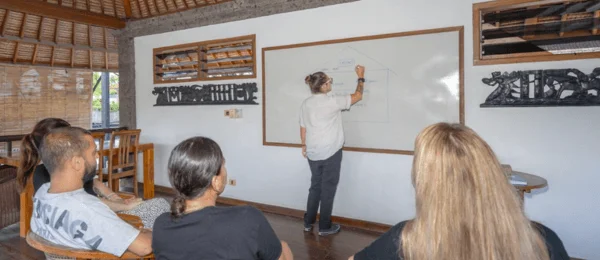
How to Help an Alcoholic: A Guide for Family Members
All across Australia, people drink alcohol, and these drinking habits are perfectly normal. When a person gets home from work, they may have a beer to relax. They may head to the pub to have a pint with their friends.
If they go out to dinner, they may pair their meal with wine. If they’re celebrating a special occasion, they may pop a bottle of champagne. Drinking isn’t just accepted, it’s normalised and, for the most part, there’s nothing wrong with it. Most people drink in moderation, and even the occasional bout of binge drinking is fine.
However, drinking can become a problem when someone becomes dependent on it. If they were to stop drinking, they would go through alcohol withdrawal. Many people have a family member or friend struggling with alcohol dependency.
At Sivana Bali, we want to help people with their addictions and their troubles. These can include mental health concerns, process addictions, and substance use disorders such as alcoholism.
An Overview of Alcohol Use Disorder (AUD)
Alcohol Use Disorder (AUD), more commonly known as alcoholism, is a condition in which someone is physically and mentally dependent on alcohol. Alcoholics often prioritise drinking above all else.
Like many other addictions, it’s not fully understood what causes a person to develop alcoholism. However, it’s believed that a combination of environmental, biological, and genetic factors all play a role in addiction.
Alcohol misuse can have long-term impacts on health, especially on the liver. Many alcoholics end up developing cirrhosis.
Alcohol addiction is treatable. Behavioural therapies, medication, and support groups can help a person develop coping strategies to manage their cravings without drinking.
Signs Someone You Love Might Have an Alcohol Addiction
Before you talk to a loved one about their drinking, you have to make sure that they’re actually an alcoholic – remember, not everyone who drinks has a problem with alcohol. Some people may even drink to excess, but that doesn’t mean that they’re an alcoholic.
A telltale sign that someone is an alcoholic is if they can’t stop or even cut down on their drinking, even if they say they will. Another sign is if they drink when it’s not appropriate to do so, such as having a drink while working or sipping out of a flask while getting groceries.
A major sign that someone is an alcoholic is if their drinking starts getting them into trouble, either with the law or with other people. If that happens, then you’ll know that you have to intervene before things get worse.

How To Talk To An Alcoholic About Their Drinking Problem
One of the first things that you have to do after you’ve determined that someone you know has AUD is to talk to them about it. But you can’t just approach them and start talking to them about their drinking. You have to optimise the chances of them listening to what you have to say.
Here are a few things that will help you talk to a loved one about their drinking:
Practice What You Need to Say
Before talking to a friend or loved one, go over what you need to say. Make sure you convey to them that you’re going to offer to help and support them in their recovery and that you care about them.
Pick The Right Time and Place
If you’re going to talk to someone with alcoholism, then you need to do it while they are sober so they can process what you say to them. You should also make sure to talk to them in a private place so you won’t be interrupted or distracted.
Do Not Judge
When you have a conversation with your loved one about their drinking, do not get judgmental. Many addicts can become defensive about their addiction. Tell them that you’re worried about how much they’re drinking rather than telling them that they’re drinking too much.
Provide Specific Examples
While you shouldn’t be judgmental, you do need to make sure that they know that their dependence on alcohol has impacted you. If you can, provide specific examples of when their drinking has negatively affected you or others. This will help them see the extent to which their behaviour affects the people around them.
Listen To Them
Remember that conversations go both ways when you’re talking to a loved one. Don’t just talk at them; listen to them. Let them say what they need to say without interrupting or judging them. Many problem drinkers can feel defensive or ashamed over their addiction, so let them speak and validate their feelings.
How To Help An Alcoholic with Their Alcoholism
There are many ways that you can help someone get help for their excessive drinking. Some of these ways include:
Educate Yourself on Treatment Options
One of the first things that you can do to help an alcoholic loved one is to look up treatment programs. This can include researching inpatient rehabs that a loved one may check in to, outpatient programs that they can attend, and counsellors or support groups that can give them professional treatment to begin addressing their alcohol misuse.

Encourage Them To Attend Support Groups or Therapy
Building on the above, you can encourage someone with alcohol addiction to seek help from professionals. This can include gently prodding them to go to treatment. You can also tell them about the counsellors and support groups you’ve researched that can help them quit drinking.
Refrain From Enabling Their Alcohol Problem
One of the most important things that you can do to help a loved one who is drinking too much is to not enable their habit. This means that you don’t lend them money to buy alcohol, that you don’t buy any alcohol, and you don’t make excuses if they get drunk and make a fool of themselves.
Enabling them will only hinder their treatment and there are times when you have to let them feel the consequences of their unhealthy drinking. You can refrain from drinking around them or do activities that do not involve drinking.
Support Your Loved One With Getting Sober, But Set Boundaries
On the same note as above, you also have to set boundaries. If you want to help your loved one, you must take care of yourself. Protect yourself financially, mentally, and emotionally. Remember that you can’t pour from an empty cup. Look into mutual aid groups such as Al-Anon that provide support for those who have been impacted by another person’s alcohol problem.
Be Supportive If a Loved One Relapses
Long-term recovery from a drinking problem is not a straight line. It’s often the case that people slip up and relapse. This can be especially true with AUD given how easily accessible alcohol is.
When a loved one relapses, it doesn’t mean that the treatment isn’t working or that they’re not trying. It simply means that they slipped up. It doesn’t mean that they’re back where they started; it just means that they’ve taken a step back.

How To Help Someone With Alcohol Use Disorder But Is In Denial
Not every addict will be ready to hear that they’re an addict. Some may not even know they have a problem and believe they can stop at any time if they want to. Some may not know that they have a problem, but they may not know how bad it is. They may understand the severity of their problem to some extent, but they could be in denial.
Here are a few ways to help someone who may be in denial about their alcohol addiction:
Get Help From A Professional
One of the most important things that you can do to help someone who is in denial about their addiction is to talk to a professional. Seeking professional help not only educates you on the nature of addiction but also helps educate you on the best way to approach someone in denial.
Offer Your Help, But Understand You Can’t Force Someone To Begin Treatment and Recovery
Ultimately, you have to accept that you can’t force someone into addiction treatment if they’re not ready for it. An addict can choose whether or not to seek treatment for substance abuse. You don’t have to agree with their choices and you can try to convince them to make better ones. You do, however, have to accept that their choices are theirs to make.
We Want to Help Your Loved Ones
Alcohol addiction is a serious problem that can affect anyone. It can be hard to watch someone struggle with it. Many people who have alcoholic loved ones feel powerless to do anything about it. But that’s not the case.
At Sivana Bali, we help people overcome their addictions. We’ll be with them every step of the way, from assessment to alcohol detox and even to aftercare. Contact us now, and we can begin helping your loved one.
Contact Us
